
Linz: The Cultural Gem of Austria
Linz, nestled along the banks of the Danube River, is a city teeming with history, art, and innovation. As the third-largest city in Austria, Linz offers a unique blend of old-world charm and modern vibrancy, making it a must-visit destination for travelers. Stroll through the historic Old Town, where cobblestone streets are lined with pastel-colored buildings and centuries-old churches. The Linz Castle, dating back to the 8th century, overlooks the city and offers stunning views of the Danube and beyond. For a taste of local culture, visit the Lentos Art Museum, which houses an impressive collection of modern and contemporary art. Linz is also known for its thriving music scene, home to the Brucknerhaus concert hall and the annual Ars Electronica Festival, which celebrates the fusion of art, technology, and society. The city's rich musical heritage is showcased at the Anton Bruckner Private University, where young talents hone their skills. Don't miss the chance to experience the culinary delights of Linz. Sample the famous Linzer Torte, a delicious pastry with a lattice crust and a filling of redcurrant jam. From cozy cafes to fine dining, the city's culinary scene offers something for every palate. Whether you're exploring its historical landmarks, enjoying its cultural offerings, or simply soaking in its scenic beauty, Linz promises an unforgettable journey.
Local tips in Linz
- Consider using the Linz Card for free public transport and discounts to museums and attractions.
- Check out the Ars Electronica Center for a hands-on experience with futuristic technology and interactive exhibits.
- Visit the Pöstlingberg hill for panoramic views of Linz and a ride on the historic Pöstlingbergbahn.
- Try to catch a live performance at the Brucknerhaus concert hall for an authentic taste of Linz's musical heritage.
- Explore the Donaupark for a relaxing stroll along the Danube, and enjoy its beautiful gardens and sculptures.
Neighbourhoods in Linz
Linz: The Cultural Gem of Austria
Linz, nestled along the banks of the Danube River, is a city teeming with history, art, and innovation. As the third-largest city in Austria, Linz offers a unique blend of old-world charm and modern vibrancy, making it a must-visit destination for travelers. Stroll through the historic Old Town, where cobblestone streets are lined with pastel-colored buildings and centuries-old churches. The Linz Castle, dating back to the 8th century, overlooks the city and offers stunning views of the Danube and beyond. For a taste of local culture, visit the Lentos Art Museum, which houses an impressive collection of modern and contemporary art. Linz is also known for its thriving music scene, home to the Brucknerhaus concert hall and the annual Ars Electronica Festival, which celebrates the fusion of art, technology, and society. The city's rich musical heritage is showcased at the Anton Bruckner Private University, where young talents hone their skills. Don't miss the chance to experience the culinary delights of Linz. Sample the famous Linzer Torte, a delicious pastry with a lattice crust and a filling of redcurrant jam. From cozy cafes to fine dining, the city's culinary scene offers something for every palate. Whether you're exploring its historical landmarks, enjoying its cultural offerings, or simply soaking in its scenic beauty, Linz promises an unforgettable journey.
When is the best time to go to Linz?
Iconic landmarks you can’t miss
Linz’s main square
Discover the charm of Linz at Hauptplatz, a historical square filled with culture, culinary delights, and vibrant local life.
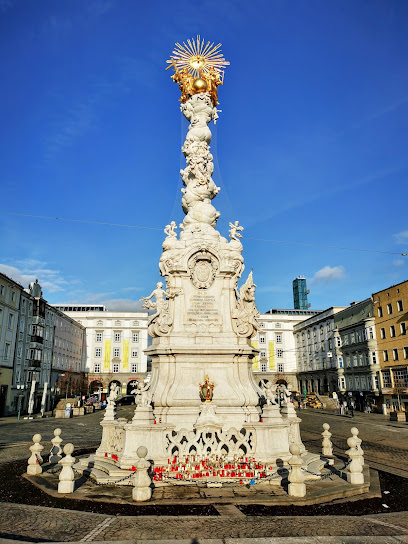
Linzer Mariendom
Discover the Linzer Mariendom, Austria's tallest cathedral, featuring stunning Gothic architecture and breathtaking views of Linz.
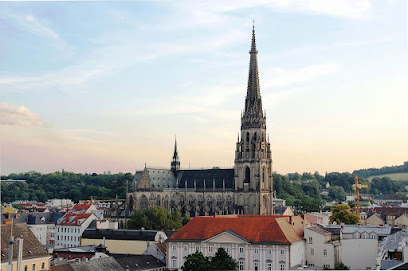
Grottenbahn
Experience the magic of fairy tales at Grottenbahn, a delightful attraction in Linz with enchanting displays and a scenic train ride.
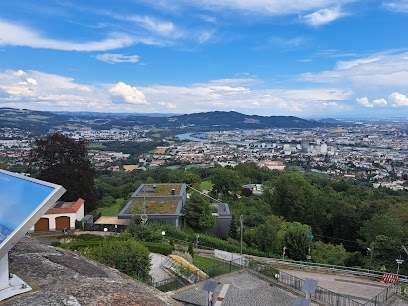
Donaulände
Discover the serene beauty of Donaulände, Linz's enchanting riverside park perfect for relaxation and recreation.
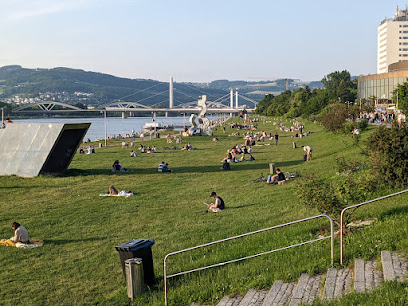
Schlossmuseum Linz
Explore the rich heritage and stunning artistry at Schlossmuseum Linz, a historic castle turned museum in the heart of Linz, Austria.
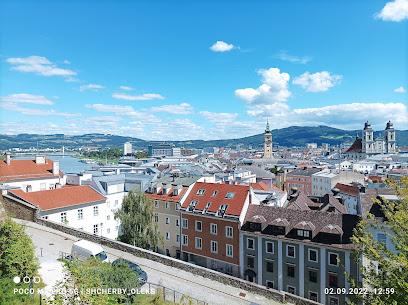
Lentos Kunstmuseum Linz
Explore the stunning Lentos Kunstmuseum Linz, where contemporary art meets architectural brilliance along the beautiful Danube River.

Dreifaltigkeitssäule
Explore the Dreifaltigkeitssäule, a stunning Baroque monument in the heart of Linz, showcasing the city's rich history and architectural beauty.
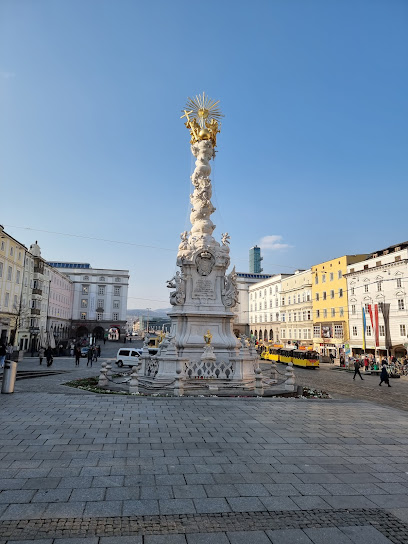
OK Center for Contemporary Art Austria
Discover the vibrant world of contemporary art at the OK Center for Contemporary Art in Linz, Austria—a must-visit for art enthusiasts and cultural explorers.
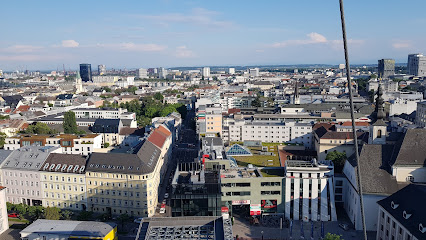
KV KAPU
Discover the cultural heart of Linz at KV KAPU, where art, music, and community come together for an unforgettable experience.
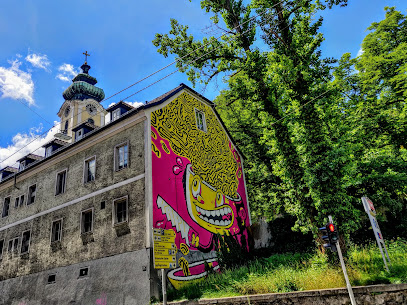
Schlosspark
Explore the lush landscapes of Schlosspark, Linz's serene retreat, where nature meets cultural charm in a beautiful park setting.
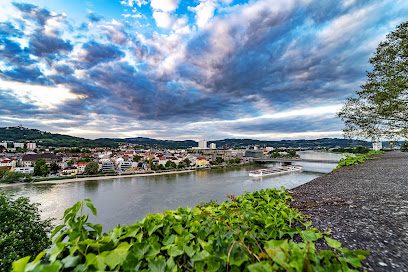
Franz-Josefs-Warte
Discover breathtaking views and rich culture at Franz-Josefs-Warte, Linz's premier observation deck that captures the essence of the city's beauty.
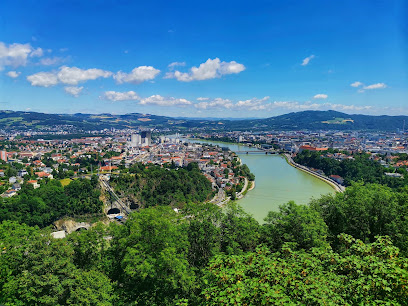
Hessenpark
Discover Hessenpark in Linz, Austria – a lush urban oasis with beautiful gardens, scenic paths, and a vibrant community atmosphere.
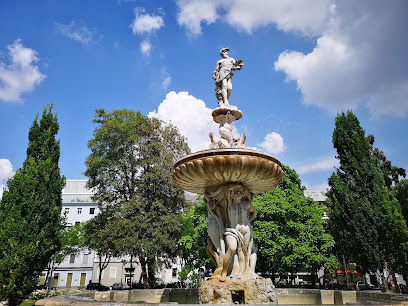
Wallfahrtsbasilika Sieben Schmerzen Mariae
Discover the architectural beauty and spiritual serenity of Wallfahrtsbasilika Sieben Schmerzen Mariae on Pöstlingberg, a must-visit destination in Linz, Austria.
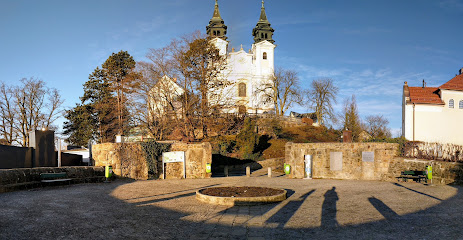
Alter Dom - Ignatiuskirche
Discover the Alter Dom - Ignatiuskirche, a stunning Baroque architectural gem in Linz, Austria, rich in culture and spiritual ambiance.
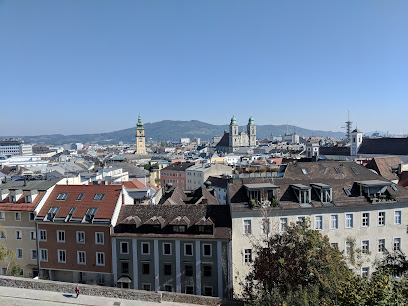
Mural Harbor Gallery
Explore the vibrant murals and street art at Mural Harbor Gallery in Linz, Austria, a dynamic hub for creativity and urban culture.
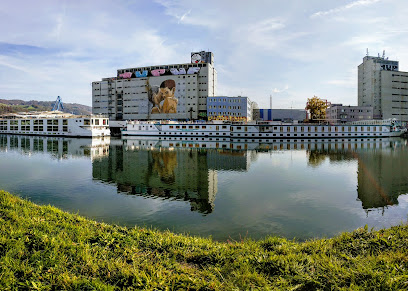
Unmissable attractions to see
Mauthausen Memorial
Explore the profound history of Mauthausen Memorial, a solemn tribute to the victims of the Holocaust and a place for reflection and remembrance.
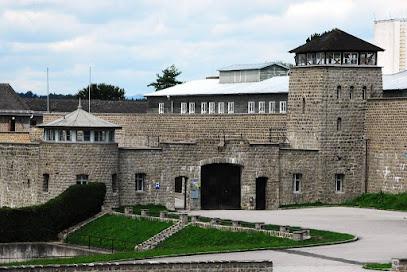
Hauptplatz Linz
Experience the vibrant culture and history at Hauptplatz Linz, the heart of Austria's picturesque city, where tradition meets modernity.
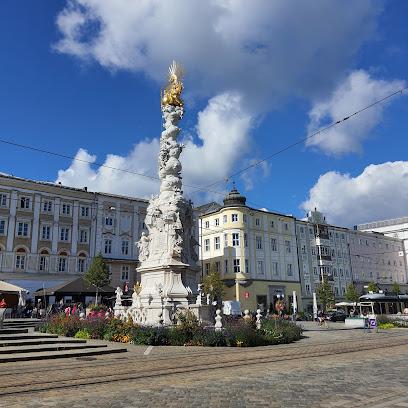
Rožmberk Castle
Experience the allure of Rožmberk Castle, a historic gem in the Czech Republic, offering breathtaking views and a rich tapestry of heritage.
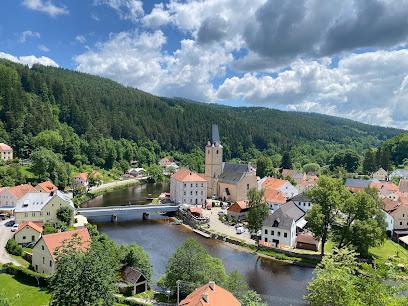
Ars Electronica Center
Discover the dynamic fusion of art and technology at Linz's Ars Electronica Center, where interactive experiences inspire creativity and innovation.
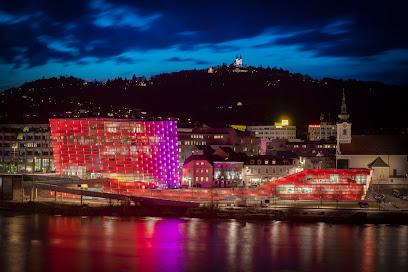
Linzer Mariendom
Explore the Linzer Mariendom, Austria's largest Catholic cathedral, a stunning blend of Gothic architecture and spiritual heritage in the heart of Linz.
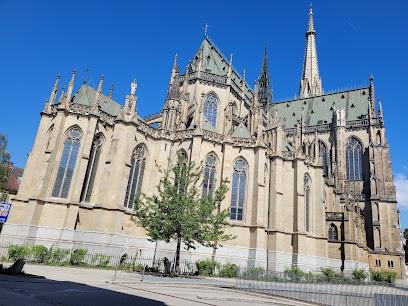
Vítkův castle
Visit Vítkův Castle for an unforgettable blend of history, stunning views, and outdoor adventures in South Bohemia.
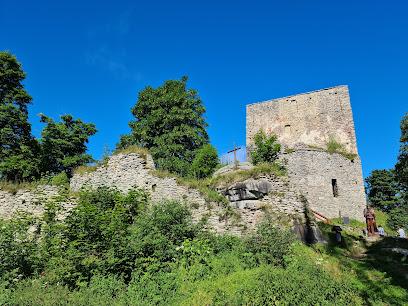
Grottenbahn
Experience the magic of Grottenbahn in Linz, Austria, where fairy tales come to life in a whimsical journey through enchanting grottoes and miniature worlds.
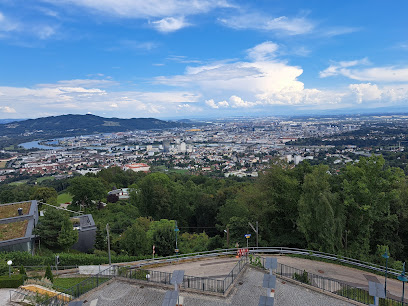
Linz Botanical Garden
Experience tranquility and beauty at the Linz Botanical Garden, a stunning oasis in the heart of Linz, Austria, perfect for nature lovers and families.
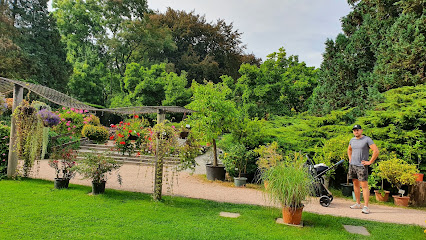
Schlossmuseum Linz
Explore the rich cultural heritage of Austria at Schlossmuseum Linz, a historic castle museum filled with captivating exhibits and stunning views.
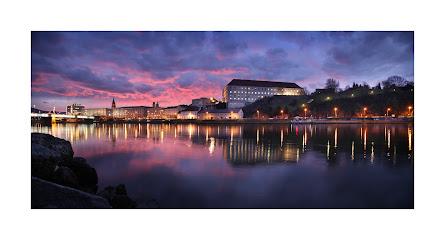
Lentos Kunstmuseum Linz
Explore modern art at Lentos Kunstmuseum in Linz - an architectural marvel by the Danube, featuring a diverse collection and stunning riverside views.
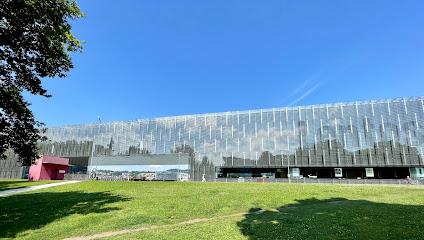
voestalpine Stahlwelt - Ausstellung & Museum
Explore the innovative world of steel at Voestalpine Stahlwelt in Linz, Austria, where history, technology, and sustainability converge.
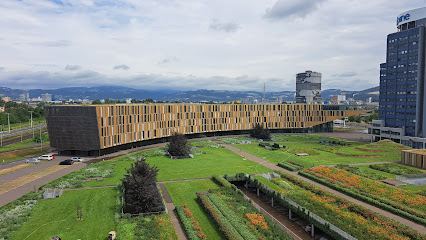
Vyšší Brod Monastery
Experience the beauty and tranquility of Vyšší Brod Monastery, a historical gem in the heart of South Bohemia, Czech Republic.
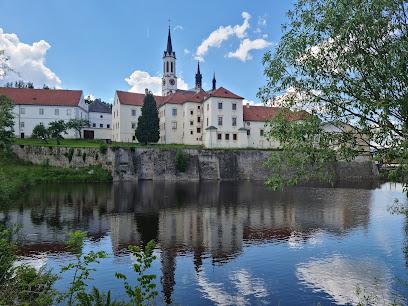
Haus am Strom GmbH
Experience the intersection of nature and technology at Haus am Strom, a unique museum in Untergriesbach by the Danube River.
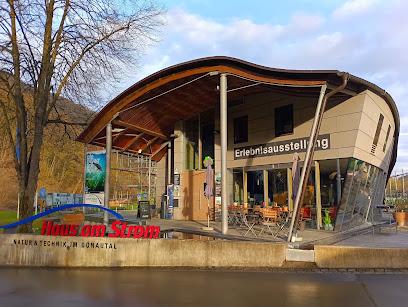
Franz-Josefs-Warte
Discover the breathtaking views of Linz from Franz-Josefs-Warte, a historical observation deck that offers a perfect blend of nature and culture.
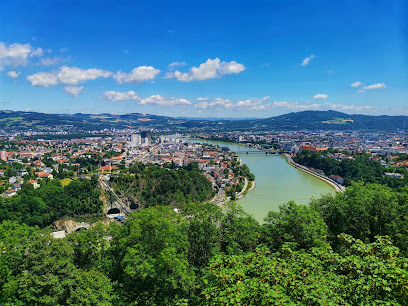
FC Francisco Carolinum Linz
Discover the cultural heart of Linz at FC Francisco Carolinum, where art and history come alive in a captivating museum experience.
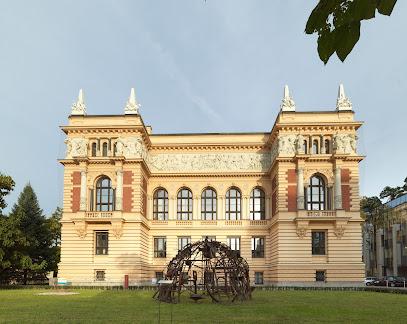
Essential places to dine
Josef
Discover exquisite dining at Josef in Linz - where traditional Austrian flavors meet contemporary culinary artistry.
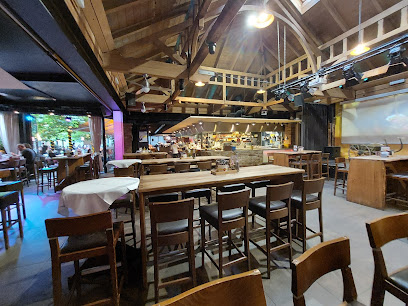
L'Osteria Linz
Savor authentic Italian cuisine at L'Osteria Linz - where every meal feels like a celebration in a vibrant atmosphere.
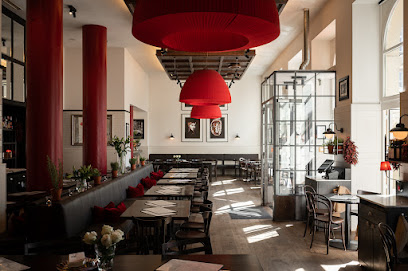
Jack the Ripperl | Linz - Taubenmarkt
Experience authentic Austrian cuisine at Jack the Ripperl in Linz - where every meal is a celebration of local flavors.
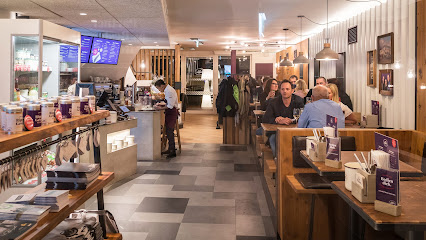
stadtliebe
Savor the rich flavors of Austria at Stadtliebe in Linz – your destination for authentic cuisine and warm hospitality.
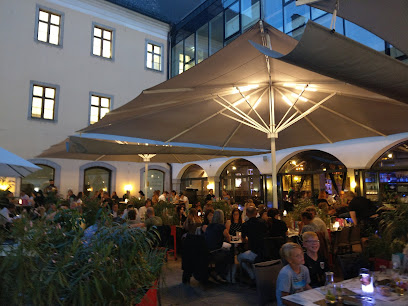
Glorious Bastards
Discover Glorious Bastards in Linz - A culinary hotspot blending traditional Austrian flavors with modern creativity.
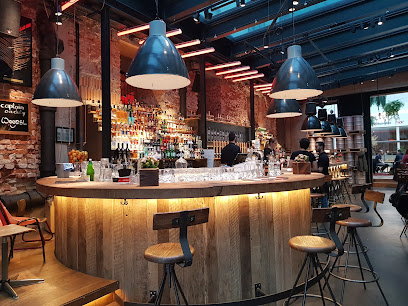
Bratwurstglöckerl
Savor authentic Austrian cuisine at Bratwurstglöckerl in Linz—home of the best bratwursts and traditional dishes.
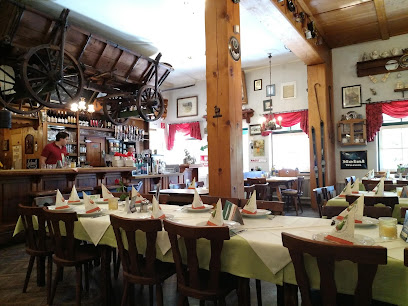
Pöstlingberg Schlössl
Experience fine dining at Pöstlingberg Schlössl with breathtaking views of Linz - a perfect blend of culinary excellence and scenic beauty.
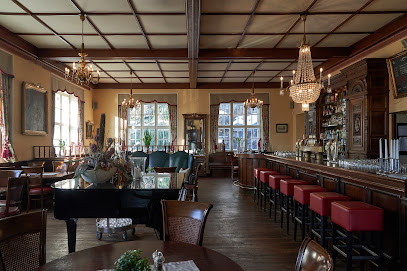
PAULS steak & veggi Linz
Experience exquisite American cuisine alongside vibrant vegetarian dishes at PAULS Steak & Veggi in Linz.
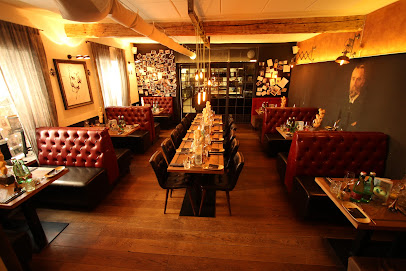
STEAKHOUSE
Experience culinary mastery at Steakhouse Linz with top-quality steaks and a stunning riverside view.
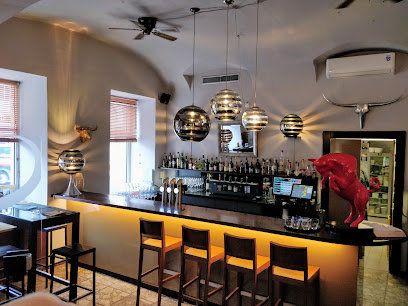
Restaurant Rauner
Experience the best of Austrian cuisine at Restaurant Rauner in Linz – where tradition meets innovation in every bite.
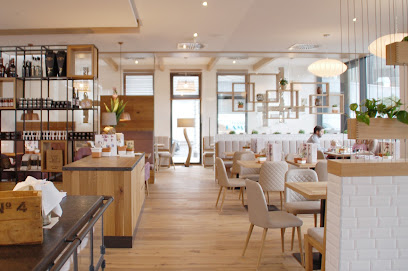
Gelbes Krokodil
Experience exceptional Austrian cuisine at Gelbes Krokodil in Linz - where tradition meets innovation in every bite.
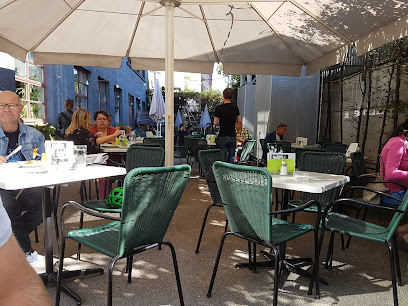
ÄNGUS Downtown
Experience authentic American cuisine at ÄNGUS Downtown in Linz - where flavor meets hospitality.
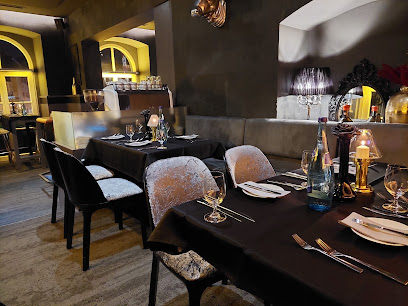
Wia z'haus Lehner
Discover authentic Austrian cuisine at Wia z'haus Lehner in Linz's charming Pöstlingberg borough.
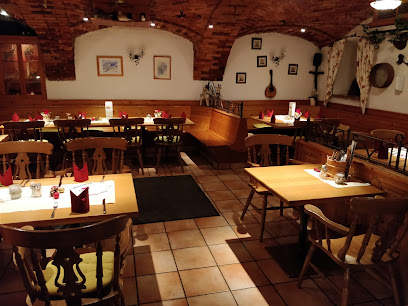
Front Food
Discover the vibrant flavors of vegan cuisine at Front Food in Linz – where health meets taste in every delightful dish.
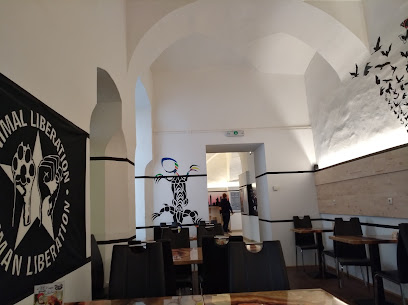
Miyako Ramen
Experience authentic Japanese cuisine at Miyako Ramen in Linz – where every bowl tells a story.
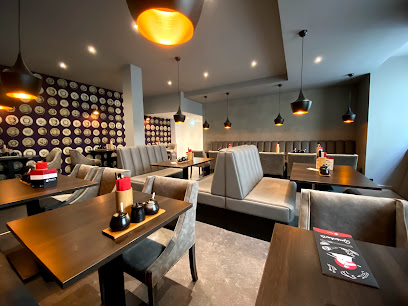
Markets, malls and hidden boutiques
Passage Linz
Discover the ultimate shopping experience at Passage Linz, where fashion meets flavor in the heart of Austria's vibrant city.
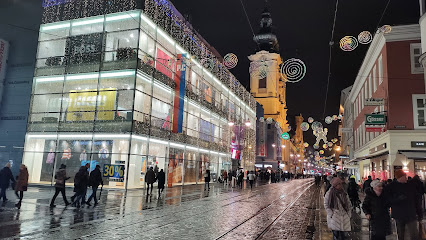
Atrium City Center
Explore the vibrant Atrium City Center in Linz - your ultimate shopping destination for fashion, dining, and entertainment.
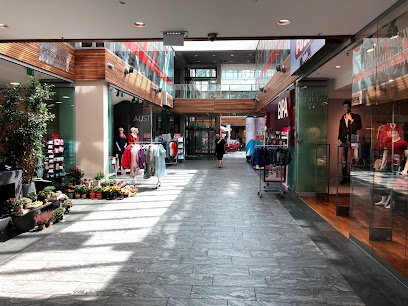
Linzerie
Explore Linzerie, Linz's top shopping mall, offering a mix of local and international brands in a vibrant atmosphere.
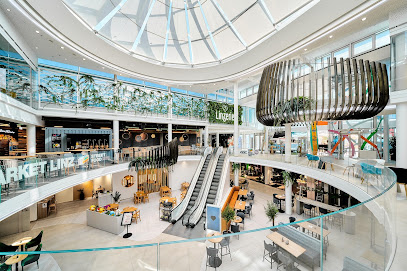
Nespresso Boutique Linz
Experience the art of coffee at Nespresso Boutique Linz - your gateway to premium coffee machines and exquisite capsules.
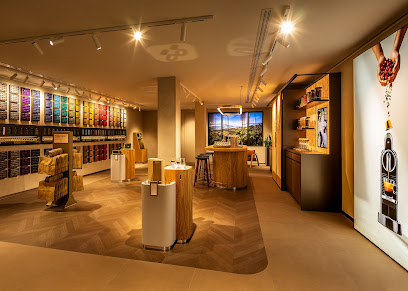
Game Store
Explore Linz's ultimate gaming destination, featuring a diverse range of games, collectibles, and community events for all enthusiasts.
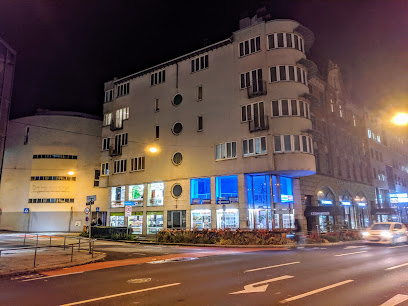
Herzenstöchter
Explore the fashion-forward world of Herzenstöchter in Linz, where style meets quality in a charming shopping experience.
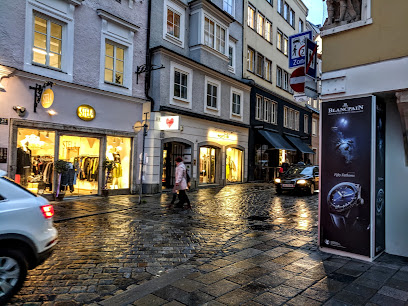
GEKO Claudia Johnson
Explore unique fashion and exquisite costume jewelry at GEKO Claudia Johnson in the heart of Linz. A must-visit for style enthusiasts.
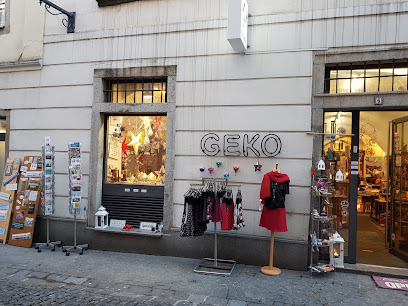
Markthalle
Discover Markthalle, Linz's premier architectural salvage store, featuring unique antiques and vintage treasures perfect for every collector.
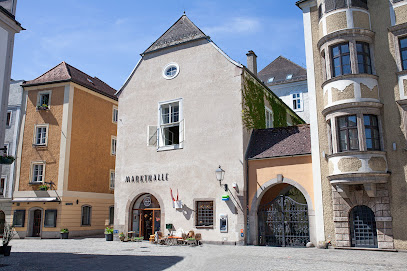
City Outlet Linz
Discover unbeatable deals on fashion and sporting goods at City Outlet Linz, your ultimate shopping destination in Austria's vibrant Linz.
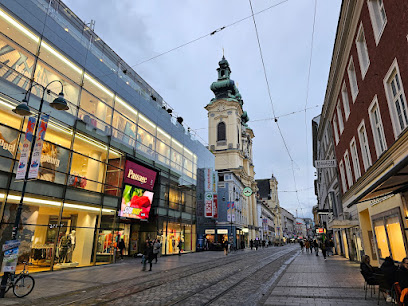
Swarovski Store Linz
Explore the dazzling world of Swarovski in Linz, where craftsmanship meets elegance in stunning crystal jewelry and accessories.
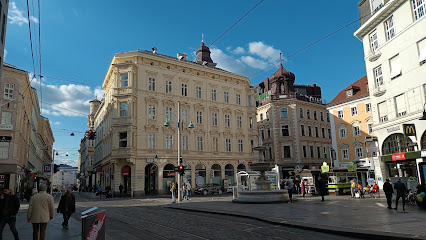
Living
Explore Living in Linz, a unique gift shop offering an array of baby clothing, wedding gifts, and seasonal treasures for every occasion.
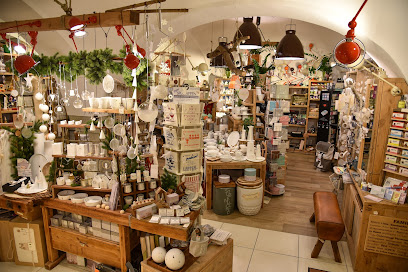
Jeans-Shop Gartner
Explore Jeans-Shop Gartner in Linz for an unrivaled selection of high-quality jeans, perfect for every style and fit.
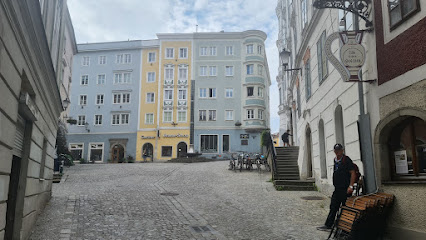
Mammut Store Linz
Discover top-notch outdoor gear and apparel at Mammut Store Linz, your adventure hub in the heart of Austria.
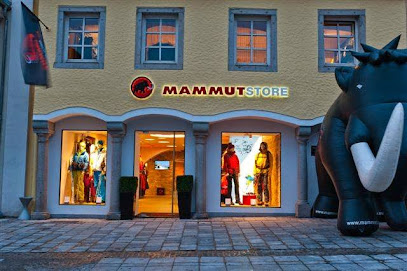
Olesstore Vintage
Explore Olesstore Vintage in Linz for a unique shopping experience filled with sustainable fashion and timeless treasures.
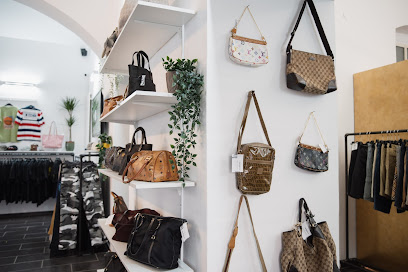
Weltladen Linz
Explore Weltladen Linz: Your go-to destination for organic products, eco-friendly clothing, and a cozy café in the heart of Linz.
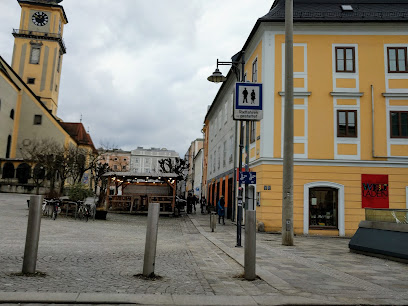
Essential bars & hidden hideouts
Rox Musicbar & Grill Linz
Experience the perfect blend of mouthwatering barbecue, lively atmosphere, and captivating music at Rox Musicbar & Grill in Linz, Austria.
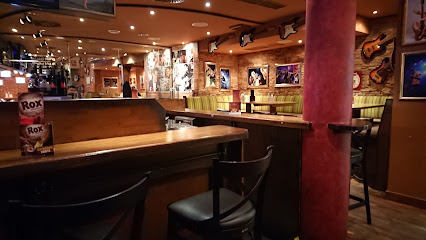
Lennox - Bar
Experience the vibrant cocktail culture at Lennox, Linz's premier bar offering innovative drinks in a stylish setting.
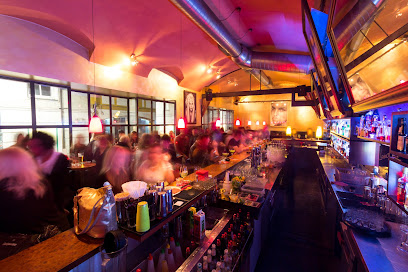
Chelsea Pub
Discover the vibrant atmosphere and authentic Irish cuisine at Chelsea Pub, a must-visit destination for tourists in Linz.
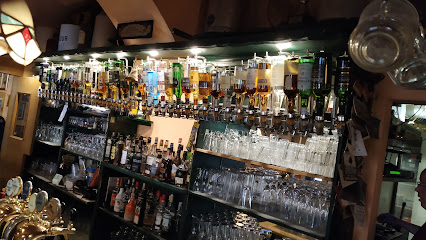
Remembar
Discover the vibrant nightlife of Linz at Remembar, where great drinks and an electric atmosphere await you.
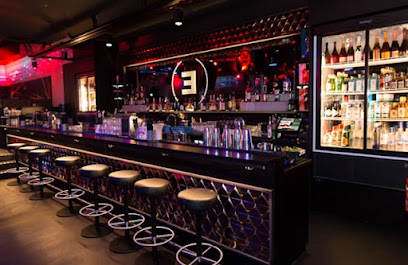
Die Cocktailbar Linz
Discover Die Cocktailbar Linz, where innovative cocktails meet a vibrant atmosphere in the heart of Austria's charming city.
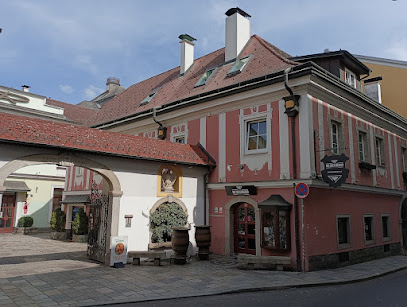
HEMINGWAY'S MUSIC & JAZZ BAR
Discover the vibrant nightlife at Hemingway's Music & Jazz Bar in Linz, where cocktails and live music create unforgettable experiences.
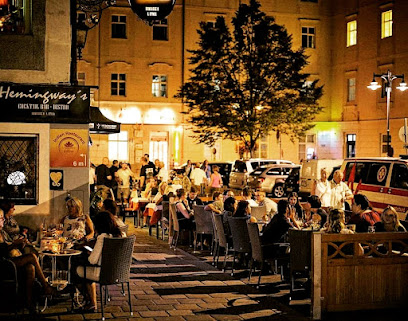
Bugs
Experience the vibrant atmosphere and diverse menu at Bugs Bar in Linz, where great food and drinks meet local nightlife.
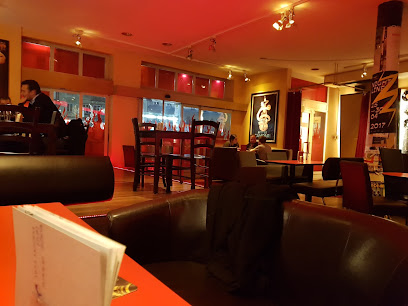
The Old Dubliner
Discover the vibrant atmosphere of The Old Dubliner, an Irish pub in Linz known for its authentic cuisine, live music, and welcoming ambiance.
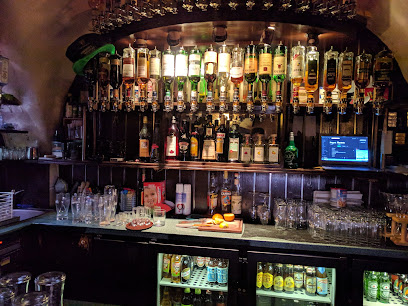
Frau Dietrich
Discover the lively cocktail bar experience at Frau Dietrich in Linz, where innovative drinks and delicious hot dogs meet a vibrant atmosphere.
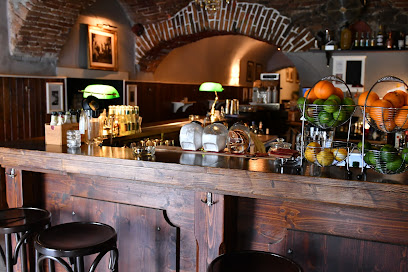
Easy Bar
Discover the vibrant nightlife of Linz at Easy Bar, where creative cocktails meet a lively atmosphere for an unforgettable evening.
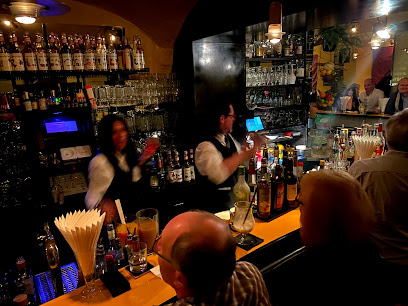
Rooftop7
Experience breathtaking views and gourmet dining at Rooftop7, Linz's premier rooftop bar and grill offering a unique culinary adventure.
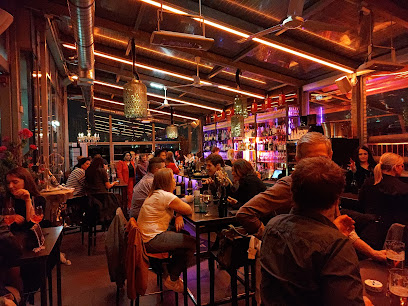
Solaris
Experience the lively atmosphere of Solaris, a premier bar in Linz, offering exquisite cocktails and a vibrant social scene.
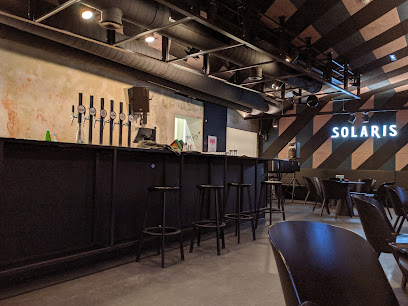
Röders
Experience the lively nightlife at Röders, a trendy bar in Linz, Austria, known for its creative cocktails and vibrant atmosphere.
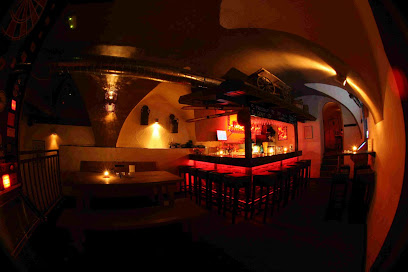
Das Goldene Einhorn
Discover Das Goldene Einhorn, Linz's premier cocktail bar, where creativity meets craftsmanship in every sip.
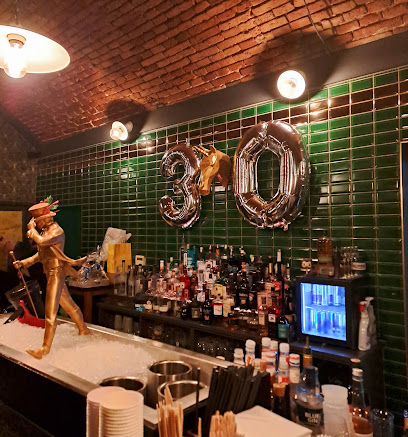
Local Phrases
-
- HelloServus
[zair-voos] - GoodbyeAuf Wiedersehen
[owf vee-der-zay-en] - YesJa
[yah] - NoNein
[nine] - Please/You're welcomeBitte
[bi-teh] - Thank youDanke
[dahn-keh] - Excuse me/SorryEntschuldigung
[ent-shool-dee-goong] - How are you?Wie geht es dir?
[vee gayt es deer] - Fine. And you?Gut. Und dir?
[goot oond deer] - Do you speak English?Sprechen Sie Englisch?
[shpre-khen zee eng-leesh] - I don't understandIch verstehe nicht
[ikh fer-shtay-e nikht]
- HelloServus
-
- I'd like to see the menu, pleaseIch möchte bitte die Speisekarte sehen
[ikh merkhte bi-teh dee shpye-ze-kahr-teh zay-en] - I don't eat meatIch esse kein Fleisch
[ikh ess-eh kine flysh] - Cheers!Prost!
[prohst] - I would like to pay, pleaseIch möchte bitte zahlen
[ikh merkhte bi-teh tsah-len]
- I'd like to see the menu, pleaseIch möchte bitte die Speisekarte sehen
-
- Help!Hilfe!
[hil-feh] - Go away!Geh weg!
[gay vehg] - Call the Police!Rufen Sie die Polizei!
[roo-fen zee dee po-lee-tsey] - Call a doctor!Rufen Sie einen Arzt!
[roo-fen zee i-nen artsht] - I'm lostIch habe mich verlaufen
[ikh hah-beh meekh fer-lou-fen] - I'm illIch bin krank
[ikh been krank]
- Help!Hilfe!
-
- I'd like to buy...Ich würde gerne kaufen...
[ikh voo-deh gehr-neh kow-fen] - I'm just lookingIch schaue nur
[ikh show-eh noor] - How much is it?Wie viel kostet das?
[vee feel kohs-tet dahs] - That's too expensiveDas ist zu teuer
[dahs ist tsoo toy-er] - Can you lower the price?Können Sie den Preis senken?
[kern-en zee den prees zehn-ken]
- I'd like to buy...Ich würde gerne kaufen...
-
- What time is it?Wie spät ist es?
[vee shpet ist es] - It's one o'clockEs ist ein Uhr
[es ist iyn oor] - Half past (10)Halb elf
[halb elf] - MorningMorgen
[mor-gen] - AfternoonNachmittag
[nahk-mit-tahk] - EveningAbend
[ah-bent] - YesterdayGestern
[gehs-tern] - TodayHeute
[hoi-teh] - TomorrowMorgen
[mor-gen] - 1Eins
[iyns] - 2Zwei
[tsvai] - 3Drei
[dray] - 4Vier
[feer] - 5Fünf
[foonf] - 6Sechs
[zeks] - 7Sieben
[zee-ben] - 8Acht
[ahkt] - 9Neun
[noyn] - 10Zehn
[tsayn]
- What time is it?Wie spät ist es?
-
- Where's a/the...?Wo ist ein/der...?
[vo ist iyn/dehr] - What's the address?Was ist die Adresse?
[vas ist dee ah-dreh-suh] - Can you show me (on the map)?Können Sie mir zeigen (auf der Karte)?
[kern-en zee meer tsai-gen (ouf dehr kar-teh)] - When's the next (bus)?Wann kommt der nächste (Bus)?
[vahn kohmt dehr nekhs-teh (boos)] - A ticket (to ....)Eine Fahrkarte (nach ...)
[iyn-eh fahr-kahr-teh (nahkh ...)]
- Where's a/the...?Wo ist ein/der...?
History of Linz
-
Linz, originally known as Lentia, was a small but significant Roman settlement. Established around 15 BC, it served as a strategic outpost on the Danube River. The remnants of its Roman past can still be seen in the city's layout and occasional archaeological finds.
-
During the early Middle Ages, Linz grew under the influence of the Babenberg dynasty. The city received its first charter in 1210, marking its importance as a trade hub. Linz's strategic location on the Danube made it a vital link in the trade routes between East and West.
-
The Habsburg dynasty brought prosperity to Linz in the 15th and 16th centuries. Emperor Friedrich III resided in Linz and commissioned the construction of several significant buildings, including the old cathedral. The city became a center of arts and culture during this period, with a flourishing economy driven by trade and manufacturing.
-
Linz underwent significant transformation during the Baroque period in the 17th and 18th centuries. Magnificent buildings such as the New Cathedral and the Old Town Hall were constructed, reflecting the architectural grandeur of the time. The city's skyline was forever changed by these monumental structures.
-
The early 19th century saw Linz occupied by Napoleonic forces, which brought both turmoil and modernization. Following Napoleon's defeat, Linz embraced the Industrial Revolution, becoming a vital center for iron and steel production. The establishment of factories and railways transformed the city's economy and infrastructure.
-
Linz played a controversial role during World War II as it was part of Nazi Germany's annexation of Austria. The city was heavily bombed, leading to significant destruction. Post-war, Linz underwent extensive reconstruction and emerged as a symbol of recovery and resilience. The transformation included the development of new industries and the expansion of the steel sector.
-
Today, Linz is known for its vibrant cultural scene and innovative spirit. The city is home to the Ars Electronica Center, a museum and research facility dedicated to electronic arts and future technologies. Linz has also been recognized as a UNESCO City of Media Arts, reflecting its commitment to blending tradition with innovation.
Linz Essentials
-
Linz, located in Upper Austria, is accessible via several modes of transportation. The closest airport is Linz Airport (Blue Danube Airport), around 14 km from the city center. Alternatively, Vienna International Airport is about 2 hours away by train. Linz Hauptbahnhof (central train station) is well-connected to major Austrian cities and neighboring countries via ÖBB (Austrian Federal Railways). Buses, including long-distance services, also connect Linz to various destinations. The city is accessible by car through the A1, A7, and A8 motorways.
-
Linz has an efficient public transportation system that includes trams, buses, and regional trains operated by Linz AG. Tickets can be purchased at vending machines, online, or via mobile apps. Taxis and ride-sharing services like Uber are available. For a more eco-friendly option, consider renting a bicycle from Linz's bike-sharing program. Walking is also a great way to explore the compact city center.
-
The official currency in Linz is the Euro (€). Credit and debit cards are widely accepted in hotels, restaurants, and shops. ATMs are plentiful, and cash can be easily withdrawn. For smaller establishments, especially in more traditional areas, it is advisable to carry some cash. Contactless payment methods are also increasingly popular.
-
Linz is generally a safe city for tourists. However, it is always wise to take standard precautions. Avoid leaving valuables unattended, especially in crowded areas like Hauptplatz (Main Square) and public transport hubs. While Linz does not have specific high-crime areas targeting tourists, it is advisable to stay vigilant and avoid poorly lit areas at night.
-
In case of emergency, dial 112 for immediate assistance (police, fire, and medical services). The main hospital in Linz is Kepler University Hospital, which provides comprehensive medical services. Pharmacies are readily available and can provide over-the-counter medications. It is recommended to have travel insurance that covers medical emergencies.
-
Fashion: Do dress smart-casual when dining out or visiting cultural sites. Avoid overly casual or revealing clothing. Religion: Do respect local customs, especially when visiting churches. Cover your shoulders and knees. Public Transport: Do validate your ticket before boarding. Don’t speak loudly or eat on public transport. Greetings: Do greet people with a firm handshake. Don’t use first names immediately; wait until invited to do so. Eating & Drinking: Do try local specialties like Linzer Torte. Don’t rush your meals; Austrians enjoy leisurely dining.
-
To experience Linz like a local, visit weekly markets such as Südbahnhofmarkt for fresh produce and local goods. Take a stroll along the Danube River and explore the Donaulände park. Engage with locals in coffee houses, and don’t miss the Ars Electronica Center for a taste of Linz's innovative spirit. For an off-the-beaten-path experience, visit Pöstlingberg for panoramic views of the city.
Trending Landmark in Linz
-
Linz’s main square
-
Linzer Mariendom
-
Grottenbahn
-
Donaulände
-
Schlossmuseum Linz
-
Lentos Kunstmuseum Linz
-
Dreifaltigkeitssäule
-
OK Center for Contemporary Art Austria
-
KV KAPU
-
Schlosspark
-
Franz-Josefs-Warte
-
Hessenpark
-
Wallfahrtsbasilika Sieben Schmerzen Mariae
-
Alter Dom - Ignatiuskirche
-
Mural Harbor Gallery
Nearby Cities to Linz
-
Things To Do in Český Krumlov
-
Things To Do in České Budějovice
-
Things To Do in Hallstatt
-
Things To Do in Salzburg
-
Things To Do in Vienna
-
Things To Do in Zell am See
-
Things To Do in Bad Gastein
-
Things To Do in Graz
-
Things To Do in Kitzbühel
-
Things To Do in Plzeň
-
Things To Do in Eisenstadt
-
Things To Do in Sopron
-
Things To Do in Klagenfurt
-
Things To Do in Kutná Hora
-
Things To Do in Brno














